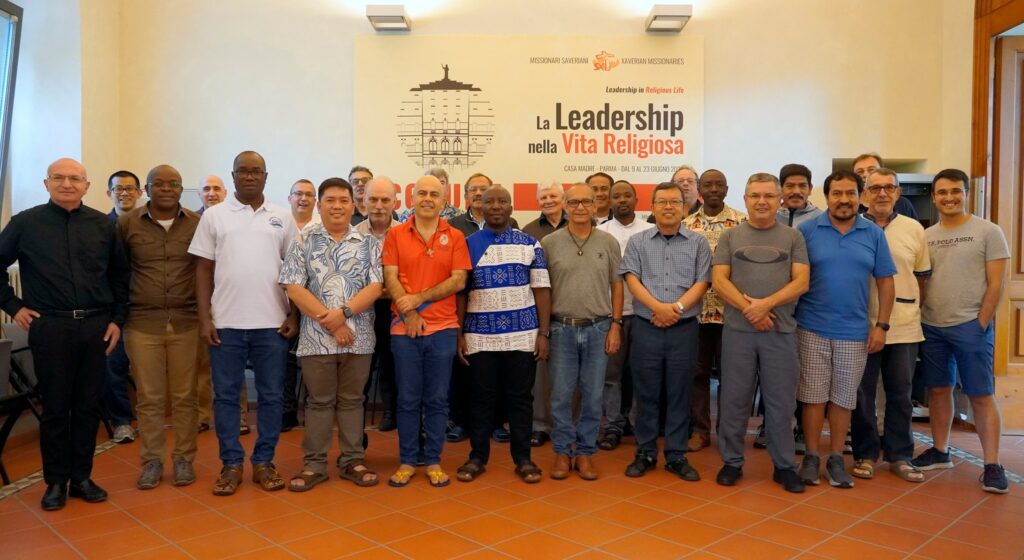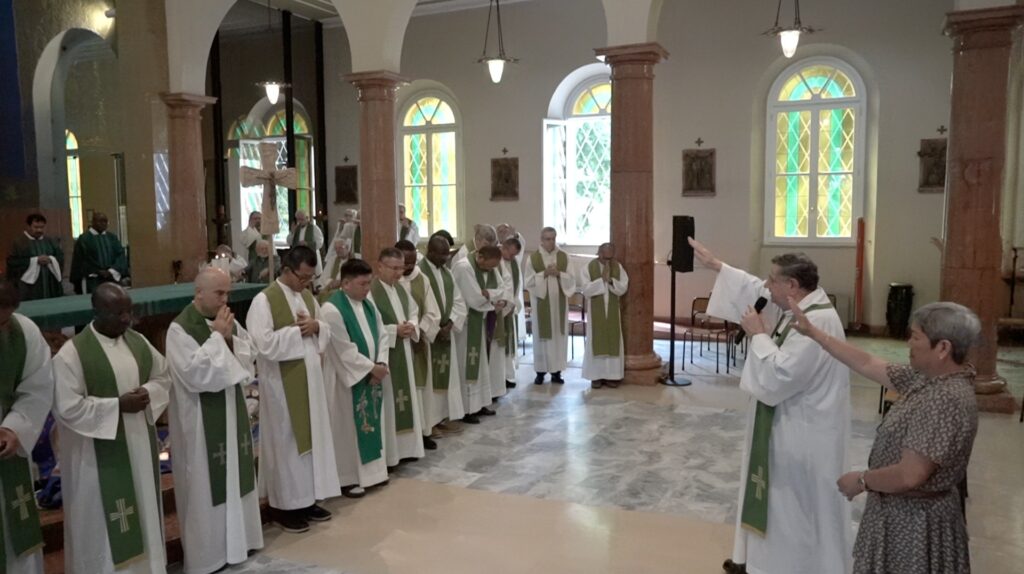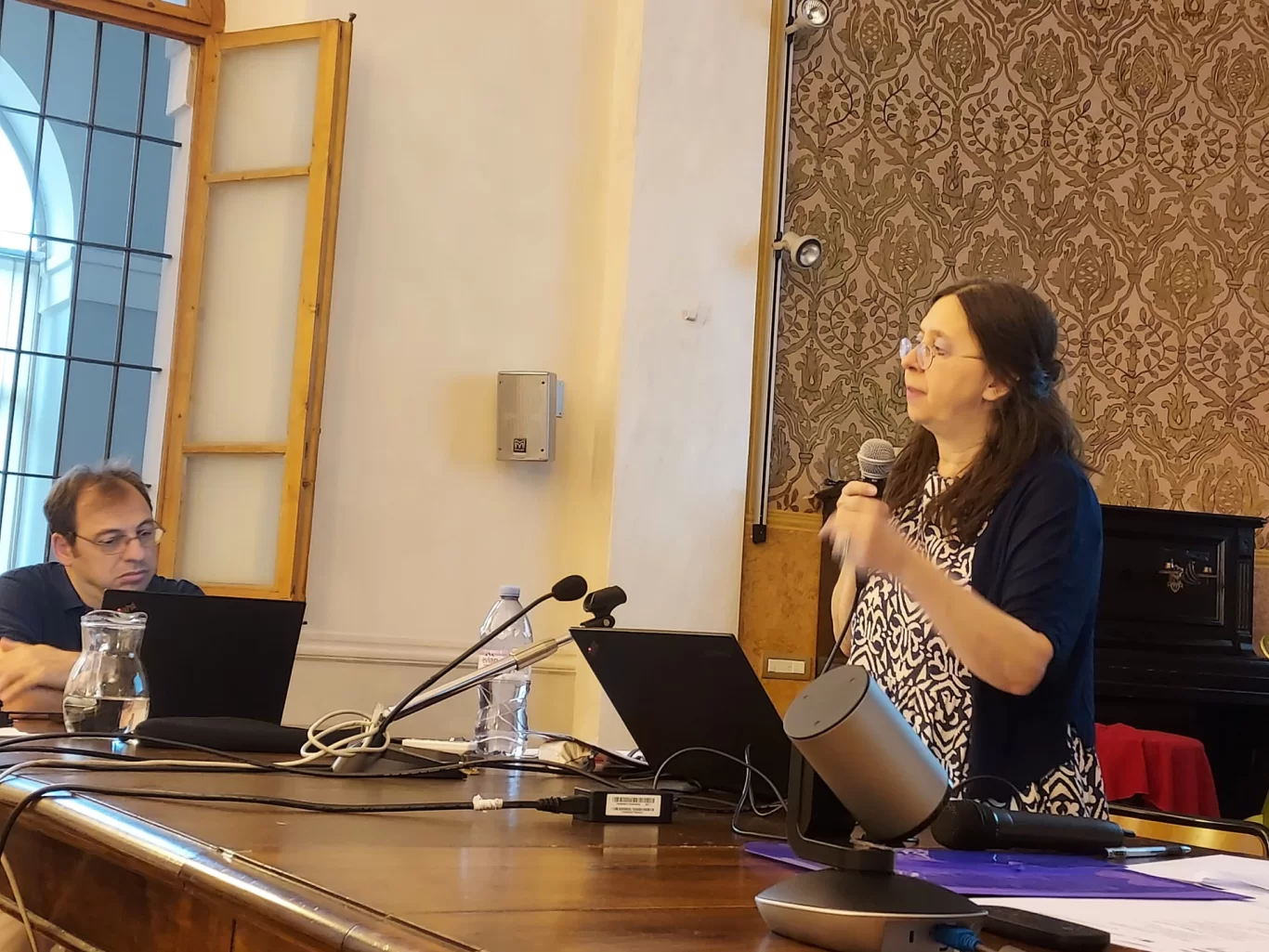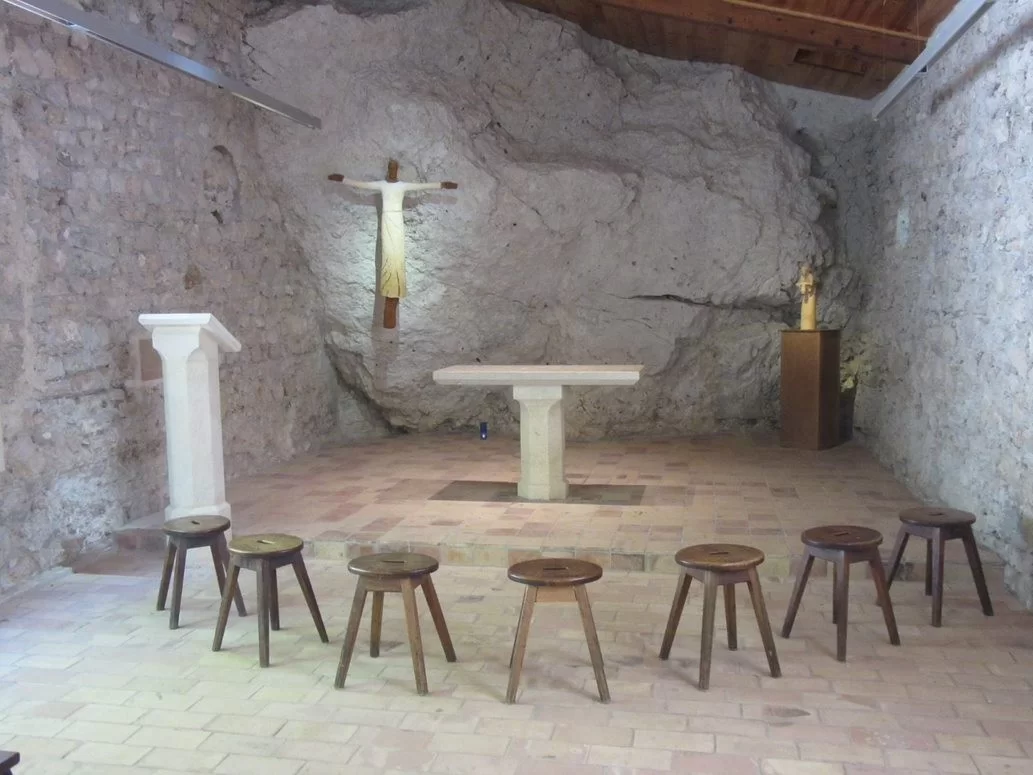Xaverian Missionary Leadership from Around the World Gather in Parma, Italy

Fr. Pietro Rossini, SX – Secretary of Cosuma 2024
On June 9th, at the San Guido Maria Conforti Sanctuary, located at the Mother House of the Xaverian Missionaries in Parma, the opening Mass of COSUMA 2024 took place. This meeting involves all the superiors of the Xaverians from around the world. The event, which will run until June 23, focuses on “Leadership in Religious Life.”
Biblical Reflection and Justice in Leadership
On Monday, June 10, we started our activities with a Eucharistic celebration presided over by Bishop Natale Paganelli. In his homily, Bishop Paganelli reminded us of the importance of trusting in God, especially during times of difficulty. He emphasized two essential attitudes for those in authority: justice and mercy.
COSUMA 2024 is not just a gathering moment but an opportunity for deep reflection on how Jesus understood and lived authority. Over the next few weeks, the participants will follow an intense and varied program that includes work sessions, moments of prayer and adoration, and conferences on crucial themes for religious life.
The program also includes contributions from experts such as biblical scholar Rosanna Virgili, who will lead reflections on the biblical foundation of authority, and theologian Serena Noceti, who will explore the spirituality that sustains the service of authority in the synodal Church.

Leadership in the Missionary and Synodal Church
Theologian Serena Noceti delivered a speech during COSUMA 2024, exploring themes related to leadership in the synodal and missionary Church.
Noceti began her reflection with the concept of “reform” promoted by Pope Francis, a central term of the Second Vatican Council, often met with suspicion. Since Evangelii Gaudium, Pope Francis has placed missionary reform at the heart of his work, later introducing the concept of synodality as a pillar of his ecclesial vision. Noceti centered her speech on the concept of leadership in the Synodal Church. According to the theologian, leadership is the ability to influence and guide the path of a collective group, supported by powers and structures that facilitate this exercise. She described various leadership models, from positional leadership based on the role occupied, to transformative leadership, which manages processes, motivates, and inspires others. This model is particularly relevant in the synodal Church as it promotes the active involvement of all members in the common construction of a dream, mobilizing energies and preparing future leaders.
Addressing the criticisms of personal authority in the Catholic Church, Noceti highlighted the concentration of power and the opacity of normative procedures. Synodal leadership must overcome these issues by promoting multi-directional communication and valuing the sense of faith and community. Managing opinion conflicts is crucial, and Noceti suggested the importance of understanding people’s motivations, addressing conflicts constructively, and valuing individuals’ potential.
A crucial topic addressed by Noceti was women’s leadership in the Church. Currently, women are most pastoral workers, but their presence in leadership is limited. The discussion on the female diaconate is still open. Noceti stressed the need for a Church vision that includes both male and female leadership, highlighting that promoting female leadership is essential for an inclusive synodal Church.

The Spiritual Legacy of Christian de Chergé
Christian de Chergé was the Prior of the Tibhirine monastery in Algeria, a place that became tragically famous after the martyrdom of its monks. His life and service as a superior provide significant examples of how authority can be lived out in a context of interreligious dialogue and conflict. Our confrere, Paolo Tovo, explores his approach to authority, the context in which he operated, and the legacy he left behind.
Paolo Tovo summarized the sanctity of Christian de Chergé in six main points:
- The ability to adapt and renounce personal projects in favor of the community’s path.
- Promoting unity and spiritual growth within the monastic community.
- Harmoniously integrating the monastic community with the local Church.
- Opening the community to the historical and cultural context of the Algerian people.
- The profound conviction that Christ speaks in the heart of every person, regardless of their faith.
- The practice of universal fraternity, seeing in every man, even in the enemy, a companion on the journey towards salvation.
Christian de Chergé remains an extraordinary example of spiritual leadership and commitment to peace and interreligious dialogue. His life and martyrdom continue to inspire many people around the world. His leadership model can be exported in other fields, not just in the religious or church environment.


